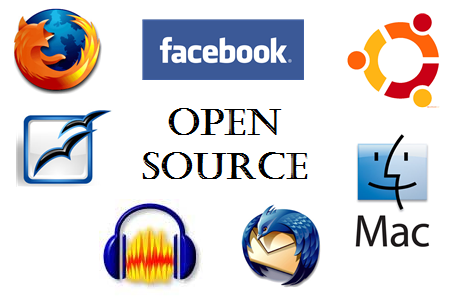
Under financial crisis, nearly all Internet corporations and organizations are affected, but except for open-source corporations and organizations like Mozilla (Famous for Firefox), WikiMediaFoundation(Famous for Wikipedia), Canonical(Famous for Ubuntu) have not been affected at all!
Why they can keep alive even though they have much lesser revenues than other deep pockets corporations?
The answer is, of course, money. They can get revenues from solutions and services and also from investment and donation. But they don’t need to pay for advertisements, promote activities, develop fees, etc. In this case, they are much luckier than Close Source corporations which are struggling under financial meltdown. A typical Close-Source software corporation is Microsoft and a typical Open-Source software corporation is Canonical. Let’s make a comparison between them:
1. Products
Microsoft has lots of software products and Internet applications, such as Windows, Internet Explorer, Microsoft Messenger, Microsoft Office, etc. Some of them like Windows and Microsoft Office are very priced highly, so Microsoft can earn a lot of money from these products.
In comparison, Canonical has Ubuntu as the core product, and some other products like Kubuntu, Xubuntu, Edubuntu and Ubuntu Server. They all are free and Open-Source, so there is a lot of other Operating Systems modified from Ubuntu. Canonical cannot earn any money from these products directly.
2. Outgo
Microsoft need to pay for many advertisements and promote activities. Not only that, it also includes staff salaries, developing fees and operating fees are necessary outgo. On the other hand, Canonical only need to pay operating fees and salaries, and of course both of them are much less than Microsoft’s.
3. Services
Microsoft offers special services like Azure to help other corporations with cloud-computing. Beside this, the tech giant also has some solutions for enterprises, but I do not think they are popular enough. However, Canonical is different. Supporting enterprises should be one of their mission. Hence many corporations get services such as Configuring Servers from Canonical.
4. Human Power
Microsoft can give good working experience & environment to staff, and they provide high pay checks too. Developers in Microsoft are really good at developing software and applications. Canonical has a big community that supports it and there are almost unlimited human power resources. As well as most of these resources are free for all, Open-Source supporters always want to share their abilities.
5. Users
Microsoft has huge amount of home and small business users, we can say that Microsoft has dominate PCs’ market. Microsoft has many enterprise users also, they can use Microsoft Exchange, Microsoft SQL Server and Microsoft Visual Studio. But don’t forget – the Redmond-based company has great contact with co-operations of OEMs such as HP, Dell, Acer, etc.
Canonical has to support all the hardware by itself because none of these hardware corporations provide hardware drivers for Ubuntu. And they got only a small amount of users, enterprises always love IBM, RedHat, Sun and Oracle instead of Canonical.
6. Users’ feelings
Microsoft’s users should have the same thoughts that’s their products are simply too expensive. These products are very impressive and useful as it helps us to work or study much easier. Canonical’s users may feel that the products are free for use, but they are too complex and not user-friendly enough. Therefore they need to get expensive services and supports.
That’s the end of comparing, you may find that Microsoft can get a lot of revenues as it has millions of users and its products are very pricey. However Canonical may be much safer under financial crisis as its outgo is very low and it has very good human power resources.
Let’s see the competitive power of Open-Source and Close-Source. As a factor, almost all operating systems are Open-Source except for Windows. Even Mac OS X is an Open-Source (not the same as Linux, because Mac OS X is under FreeBSD License’s control, not GPL), and we can know that the kernels of the Open-Source operating systems are the same – UNIX(Linux, Debian, FreeBSD, etc). So Microsoft has many competitors and only it’ll be affected pretty much under the global financial crisis. No wonder Bob stop building new working venues!
I think an increasing number of corporations will join the Open-Source community and even Internet corporations have the chance to become Open-Source. For example, Facebook is now fully open-source. Open-Source can help users to save a lot of money and can help other corporations get better services. In conclusion, Open-Source can create more value, and I think the future of the world is Open-Source.